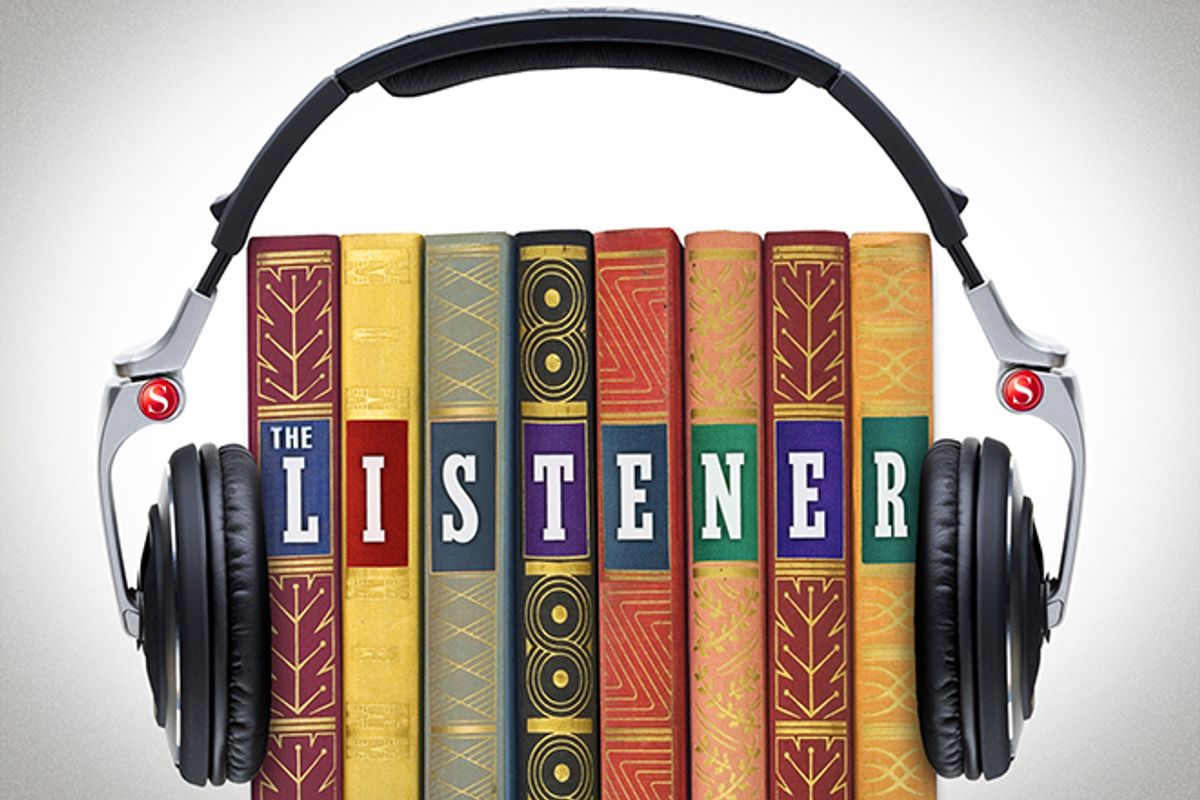“Even before the cats,” writes Susan Orlean in “Animalish,” her new audiobook, “before the dog, before the chickens, before the turkeys—and even before the ducks, the guinea fowl, the beta fish, and the ten young Black Angus cattle—I was always a little animalish.”
This won’t come as news to Orlean’s readers, who have by now spent time alongside her as she has considered the picadors’ horses and donkeys that work the bullfights, the 27 backyard tigers of southern New Jersey, the Cuban oxen Carbonaro and Primavera, the show dog Biff Truesdale, and, at book length, Rin Tin Tin, German shepherd of Hollywood.
The hallmark Orlean prose is there, too, right in the first sentence—the chatty and inviting first person, the carefully chosen (in this case invented) word upon which the stage-managed stress falls, the hyper-specific list that tells an article’s worth of story at sentence length.
What’s new is the form and the means of delivery. “Animalish” was first published not in the “New Yorker,” but rather as a Kindle Single, an article-length memoir written (and priced) for digital reading, not for print.
I’m often tempted to take a chance on digital originals by writers I already admire, because it seems like there’s not much to risk. The price is usually south of $3, and the length doesn’t require the reader to commit much in the way of time. If the short piece brings pleasure, then the time and money were well spent, and if it’s a disappointment, it’s not too big a disappointment.
And it should be said that these kinds of pieces are more often disappointment than not. Modest disappointment, usually, because the ambition of the piece is usually slight, and who could fault the writer for reserving her best work for a glossy magazine or a website with a broad readership?
Only once in a while does a digital release exceed expectations by proving itself to be strange or singular, such as Joy Williams’ near-unknown digital novel “99 Stories of God,” which was quietly released last April, or David Foster Wallace’s “Up Simba,” the first digital book of any lasting significance, published in 2000, and repackaged eight years later in print as “McCain’s Promise.” Even these strong books are mere footnotes in the careers of their authors. (The only writer, to my knowledge, who regularly releases much of his better work in this way is Joshuah Bearman, the freelance magazine journalist responsible for the Wired article from which the multiple Oscar-winning film “Argo” was adapted.)
I read “Animalish” when it was released as a Kindle Single, and found it to be a middle-register pleasure. It was pleasant enough to be in any prose of Orlean’s, and I enjoyed the gossipy pleasure of reading a little about Orlean’s romantic and family history through the lens of her animal-having history, the same way I might enjoy the window into any favorite writer’s life afforded by a breezy, if not literary, biography.
But “Animalish” certainly didn’t have legs enough to linger in memory, nor did I think at the time it was made to be that kind of piece, an opinion underscored by the observation that the most memorable line in “Animalish” is not Orlean’s but is, instead, a bit of paraphrased John Berger, who “once said that we like to look at animals because it reminds us of the past and the agrarian life that included the regular presence of animals,” an idea with which Orlean agrees but then undercuts with lesser, looser talk about how “we look at animals because they’re funny and companionable and interesting.”
In audiobook—a form that competes with and is occasionally indistinguishable from the anything-goes ramble of the podcast—this seems somehow less important an observation than it does in prose. It might be that readers are less likely to turn to the audiobook for the deeper, meditative companionship that well-made fiction and narrative nonfiction can offer, and more likely to hope in the audiobook to find a lighter companionability to accompany the traveler through work or transit of the sort that doesn’t require the whole mind but does require the use of enough of the mind to preclude, say, the engagement required by literature.
If so, an audiobook like “Animalish” is a welcome thing—long enough to pleasantly burn a chunk of time, short enough (at 37 minutes) not to tax the listener’s patience, smart enough to please the intelligence, light enough not to demand too much of it. And in a marketplace where audiobooks regularly run past $25 and $30 in price, $2.62 seems relatively little to risk.
That said, the reader and the listener might, even in a direct-to-digital release, be longing for the thing I think we’re all secretly longing to find (and we so seldom find) when we open a book or play a digital audio file—the shock and delight that arrives when we realize that the thing the writer has to offer us might be, to the teller of the tale, the most incendiary thing, the biggest secret, the hardest question, the greatest thing lost or missing, the darkest preoccupation, the most important thing in the world.

Shares